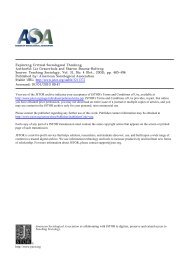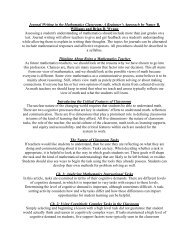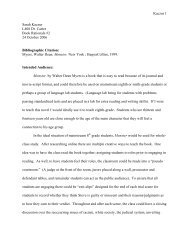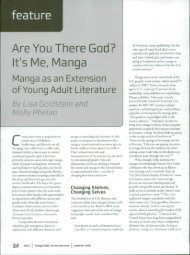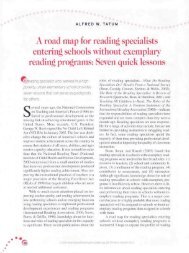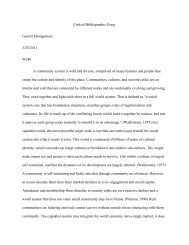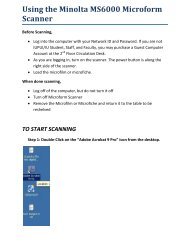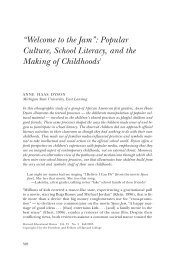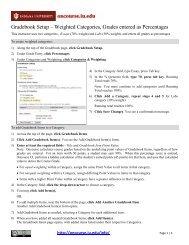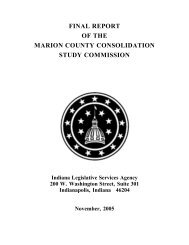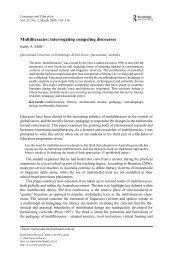Night. Night - Oncourse
Night. Night - Oncourse
Night. Night - Oncourse
You also want an ePaper? Increase the reach of your titles
YUMPU automatically turns print PDFs into web optimized ePapers that Google loves.
Kaczur 7<br />
Copyright 2006 The Salt Lake Tribune<br />
All Rights Reserved<br />
The Salt Lake Tribune<br />
August 3, 2006 Thursday<br />
SECTION: LOCAL; Education<br />
LENGTH: 1102 words<br />
HEADLINE: State weighs curriculum for teaching about the Holocaust<br />
BYLINE: By Celia R. Baker The Salt Lake Tribune<br />
BODY:<br />
Utah public schools are not required to tell students about the annihilation of European Jews during<br />
World War II, or even mention the Holocaust.<br />
Nonetheless, a State Office of Education survey shows all Utah school districts teach about the<br />
Holocaust in some manner. But the amount of time spent, means of instruction and age at which<br />
students are introduced to Holocaust-related topics varies greatly across the state.<br />
Now, the State Board of Education is contemplating the establishment of requirements and guidelines<br />
for Holocaust instruction. Seventeen states have passed legislation regarding Holocaust instruction<br />
and many states have recommendations regarding curriculum. The board will discuss the matter<br />
Friday.<br />
Robert Austin, USOE's social studies specialist, said the informal survey he conducted in Utah mirrored<br />
findings from a national study: Instruction regarding the Holocaust is widespread in schools, but<br />
students spend more time exploring books such as The Diary of Anne Frank than learning about the<br />
Holocaust from history teachers.<br />
Kellie Richins, who teaches English to Lehi High School's junior classes, has her students spend about<br />
five weeks each year studying the book <strong>Night</strong>, by Holocaust survivor Elie Wiesel. To beef up<br />
historical background for the book, Richins teams with assistant principal Mari Braithwaite, who has a<br />
degree in history.<br />
Richins won a Holland-Knight Foundation fellowship and just returned from Washington, D.C., where<br />
she studied the Holocaust with Wiesel and other Holocaust survivors.<br />
Her experience in Washington, and her years in the classroom, have taught her that helping students<br />
learn about the Holocaust does more than inform them about past events.<br />
"The reason I feel so passionate about teaching it is because you can see the seeds of what started<br />
the Holocaust all around us," she said. "You see kids intolerant because other kids don't dress the<br />
same, don't have as much money or they are not the same religion. [Studying the Holocaust] helps<br />
kids to identify their prejudices, and their tendencies to label others and make bad judgments. Then<br />
we can prevent something like the Holocaust from ever happening again."<br />
There are pitfalls to be avoided in teaching about the Holocaust, she said. In past years, some of her<br />
students have felt frustrated by their perception that Holocaust victims did too little to defend<br />
themselves.<br />
"I caution them not to be critical," she said. "They can't completely understand the situation these<br />
people were in."<br />
Richins avoids making stereotypical generalizations regarding actions and motivations of either



